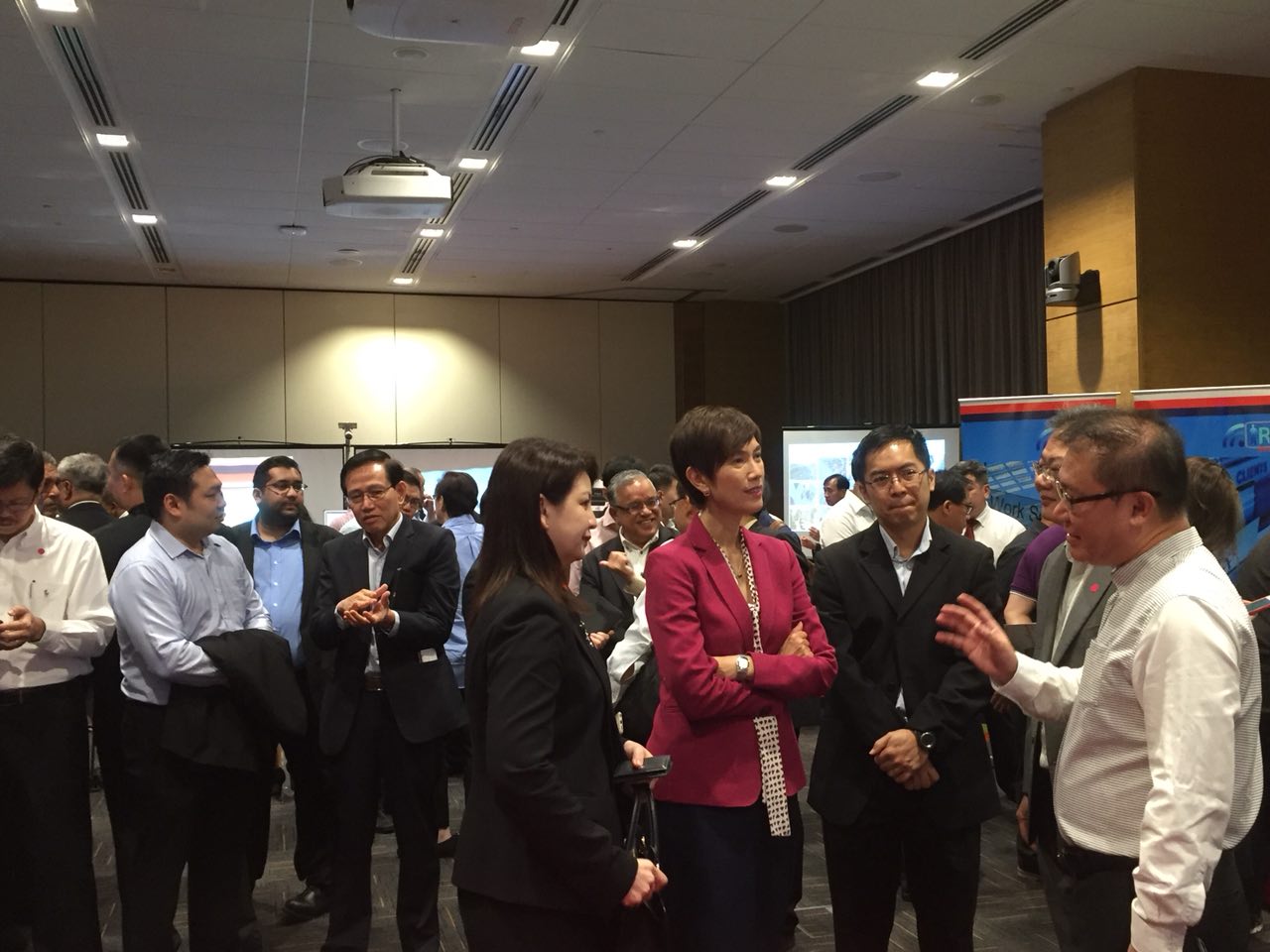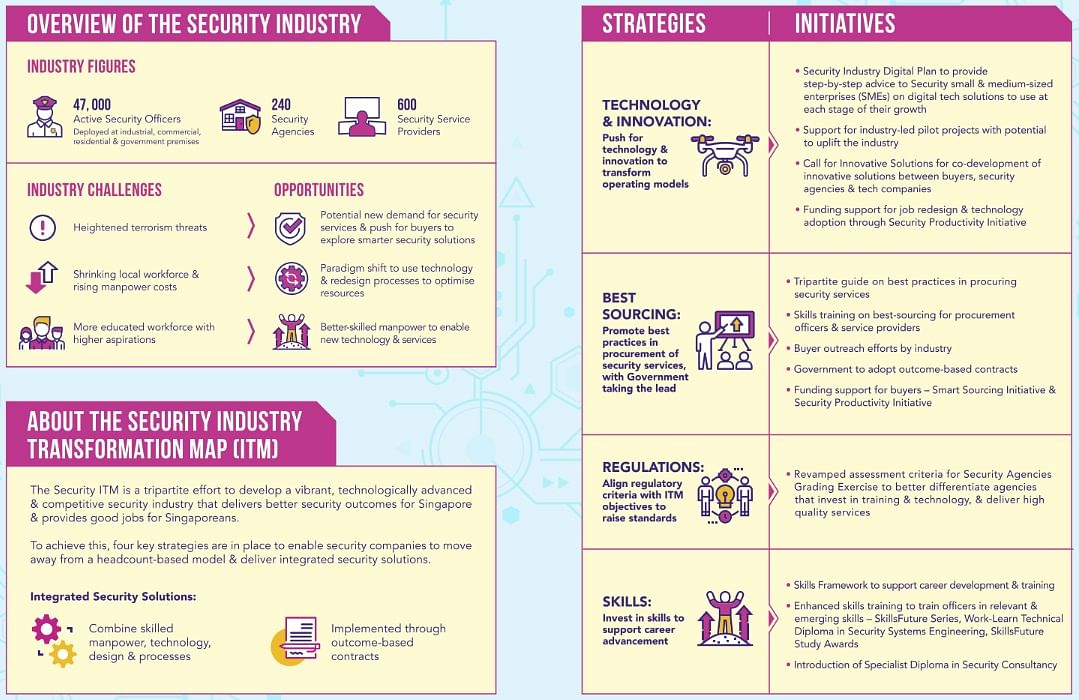New plan launched to get security companies to use tech instead of just relying on manpower
Sign up now: Get ST's newsletters delivered to your inbox

Second Minister for Home Affairs and Manpower Josephine Teo (fourth from right) at the launch of Security Industry Transformation Map (ITM) at the Lifelong Learning Institute, on Feb 13, 2018.
ST PHOTO: KUA CHEE SIONG
Follow topic:
SINGAPORE - Instead of stating how many security guards are required in a tender for a security project, an organisation could indicate the amount of time needed to respond to a security threat.
This change from a headcount-based contract to an outcome-based one allows security solutions that use technology to be better factored in tender proposals.
Conducting a risk assessment so that there can be a change to security tender specifications and how they are evaluated is one of several measures under a new plan launched on Tuesday (Feb 13).
The moves were outlined under the security industry transformation map (ITM), announced by Second Minister for Home Affairs and Manpower Josephine Teo on Tuesday.
The security ITM encourages security companies to move away from just supplying manpower to instead also make use of technology to deliver security solutions more effectively.
This comes even as the security industry is facing a manpower crunch.
The security ITM, led by the Ministry of Home Affairs (MHA), will be carried out through four initiatives: promoting best sourcing solutions; supporting technology and innovation; improving regulation standards; and improving skills and career progression.
In addition to changes to the specifications for security tenders, buyers of security services will also be encouraged to understand their security needs through risk assessment and decide on desired outcomes before making tenders.
Tender evaluation, in the areas of technology and manpower, can also be done together so that solutions can combine these aspects effectively, said Mrs Teo, who is also Minister in the Prime Minister's Office.
The Government will be taking the lead on this change, and by 2020, most government agencies will be adopting outcome-based security contracts, she added.
Mrs Teo was addressing more than 250 guests, including tripartite stakeholders and government agencies, at the launch of the security ITM at the Lifelong Learning Institute in Eunos.
"A successful transformation of the security industry must bring about better value for buyers (of security services), better jobs for Singaporeans, and at the same time, better security for Singapore," she said.

Over the next three years, the Government will also invest about $10 million to support the security ITM. Currently, there are about 47,000 security officers, 600 service providers and 240 security agencies that make up the industry.
Mrs Teo said that while demand for security services has been growing, manpower growth in the sector has been unable to keep up. There are also challenges in getting security services buyers to change their mindsets towards conducting risk assessment and investing in technology.
The NTUC U Care Centre will also be launching a new pilot grant, the Smart Sourcing Initiative, that will give funding to service buyers in the security, cleaning and landscape sectors that implement outcome-based contracts and train procurement staff to be familiar with best sourcing principles.
There will also be a guide launched by mid-2018 to teach buyers to plan and evaluate the new form of tenders.
As part of the initiatives to raise skills and support career advancement, a new specialist diploma in security consultancy has been developed by the MHA's Centre for Protective Security Studies and the Security Industry Institute under Temasek Polytechnic.
The one-year part-time programme will cover topics such as risk assessment, building security and security technologies, and aims to train 250 consultants by 2021. Its first intake is planned for 2019.
Other key changes will also have the Infocomm Media Development Authority call for proposals from industry players to develop solutions to problems in the sector.
Revisions to the Security Agencies Grading Exercise criteria will also be made to differentiate security agencies that invest in training and technology.

